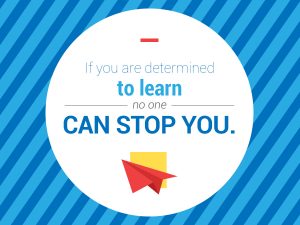How to Improve Conversational English
Language is to be spoken
We all know that the point of learning any language is to be able to have conversations with others. Not only to be understood in the supermarket, but also have the ability to contribute to a conversation, express your opinion, and ask questions, thus keeping a conversation flowing.
This can, however, prove to be the biggest obstacle for many learners. We can learn grammar rules, and short phrases, but how can we practice conversations, if we just don’t have the vocabulary or understanding?
Of course, there isn’t really any other way to practice without actually having a conversation, without speaking the words and sensing how you feel when the words start to flow. Do you get stuck?
Where are your holes?
This is a great way to find holes in your knowledge, because in conversations you will come across words you don’t yet know, or simply cannot remember, and this will push you to learn.
Now, it can be intimidating when speaking with other people if your mind goes blank and you just don’t know what to say, or you’re missing a word. The key is not to panic. Here are a few simple tips and tricks for improving your conversational language.
Reword your sentence.
There are always several ways to say the same thing, so if you find yourself half way through a sentence, and you realize you’re missing some vocabulary, the solution could be to reword your sentence. Stop for a moment, nobody is going to rush you, can you find another way to say the same thing? Surely, you can.
For example, maybe you want to say, “I’m innocent in all this,” but you cannot remember the word “innocent.” Well, then you might instead say, “I haven’t done anything wrong,” or, “It’s not my fault.” This is a kind of paraphrasing, and we’ll come back to this in another post.
Ask for help
I’m quite a proud person who doesn’t really like to ask for help or show others that I don’t know what I’m talking about. Sound like you? I hear you. This insecurity is amplified when speaking a foreign language. But, remember this, when natives speak to each they also forget what things are called. They also have to stop and ask, “Ahh, what is that thing called?… You know, that thing you use to open wine bottles?” To which the second person will reply, “a corkscrew?” BINGO!
It’s actually a very natural part of conversations because we don’t have perfect memories, sometimes we go blank. So, another method when you forget a word or find you’re missing a word, is to describe the object, situation, or whatever it may be, and this will subsequently make your conversations flow in a natural way.
Quiz yourself
I find quizzes to be one of the best ways to practice conversational language, and this is a method I use in my classes, even with complete beginners, because it immediately gets us talking and thinking about natural conversations.
By quizzes, I don’t mean general knowledge questions, like “Who wrote the fairy tale, ‘The Little Mermaid?’”, but rather open questions that give you the chance to express your opinion and talk about a range of topics such as music, love, movies, Christmas, sex, politics, etc.
This is something you can do alone because when you have a set of questions, you can practice answering them. First, try to speak. Say as much as you can to answer the topic. Then write your answers. This also gives you an opportunity to check grammar and will likely inspire you to find more answers.
As we are now in December, here’s an example quiz you can use.
Christmas Quiz
Are you in the Christmas spirit yet?
Do you like Christmas?
Do you know anyone who doesn’t like Christmas?
Are people friendlier on the run-up to Christmas/in December?
Why are people happy in December?
How important is Christmas for you?
Are you religious if you celebrate Christmas?
How did you celebrate Christmas when you were a child?
How will you celebrate Christmas this year?
What do you want for Christmas?
Do you still believe in Santa Claus?
What would you do if you were Santa Claus?
Would you rather be Santa Claus or Rudolf? -Why?
Has Christmas become too commercial?
How much do you spend on Christmas gifts?
Are you dreaming of a white Christmas?
Why do kids love snow so much?
Is there anything negative about snow?
What is the best thing about Christmas?
That was a nice long list of questions to get your Christmas juices flowing, and if you weren’t already in the Christmas spirit, I hope you are now. As always, if you have any tips for improving conversational English, please share them below. Like and share this post with your friends, and see you next time.
Podcast: Play in new window | Download



1 Response
[…] In last week’s blog post I briefly mentioned paraphrasing and thought it would be a great idea to give some more examples of this simple technique. To paraphrase basically means to reword any given phrase, that is, to say the same thing, but in a slightly different way, and often these nuances are very small. […]